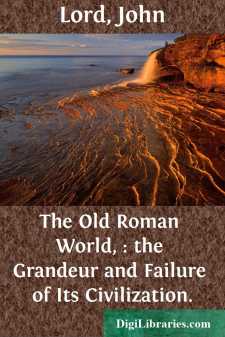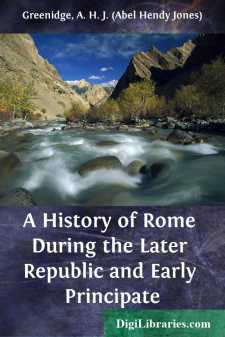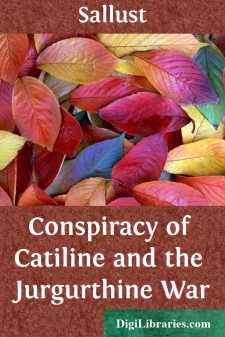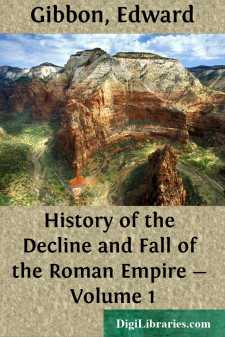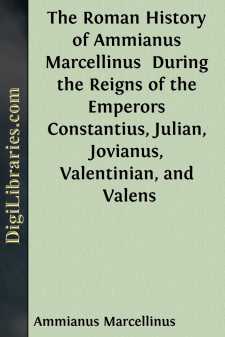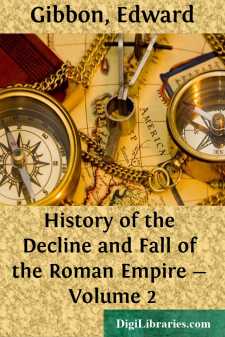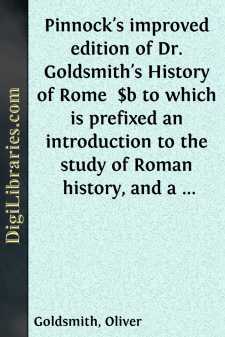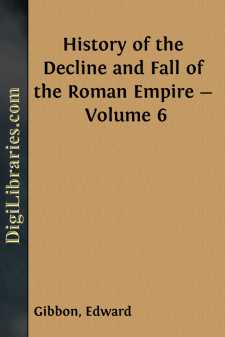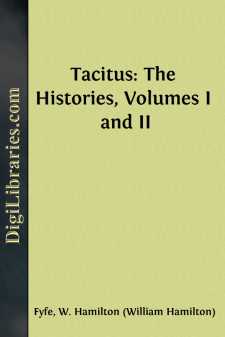History
- Africa 30
- Americas (North Central South West Indies) 50
- Ancient 68
- Asia 58
- Australia & New Zealand 8
- Canada 41
- Caribbean & West Indies 1
- Civilization 20
- Eastern Europe 12
- Europe 310
- Expeditions & Discoveries 60
- General 77
- Historical Geography 1
- Jewish 9
- Latin America 3
- Medieval 8
- Middle East 13
- Military 248
- Revolutionary 8
- Study & Teaching 5
- United States 353
- Western Europe 56
- World 13
History Books
Sort by:
by:
Charles Morris
HOW ROME WAS FOUNDED. Very far back in time, more than twenty-six hundred years ago, on the banks of a small Italian river, known as the Tiber, were laid the foundations of a city which was in time to become the conqueror of the civilized world. Of the early days of this renowned city of Rome we know very little. What is called its history is really only legend,—stories invented by poets, or ancient...
more...
by:
John Lord
I propose to describe the Greatness and the Misery of the old Roman world; nor is there any thing in history more suggestive and instructive. A little city, founded by robbers on the banks of the Tiber, rises gradually into importance, although the great cities of the East are scarcely conscious of its existence. Its early struggles simply arrest the attention, and excite the jealousy, of the...
more...
CHAPTER I The period of Roman history on which we now enter is, like so many that had preceded it, a period of revolt, directly aimed against the existing conditions of society and, through the means taken to satisfy the fresh wants and to alleviate the suddenly realised, if not suddenly created, miseries of the time, indirectly affecting the structure of the body politic. The difference between the...
more...
by:
Sallust
THE ARGUMENT. The Introduction, I.-IV. The character of Catiline, V. Virtues of the ancient Romans, VI.-IX. Degeneracy of their posterity, X.-XIII. Catiline's associates and supporters, and the arts by which he collected them, XIV. His crimes and wretchedness, XV. His tuition of his accomplices, and resolution to subvert the government, XVI. His convocation of the conspirators, and their names,...
more...
by:
Edward Gibbon
Preface By The Editor. The great work of Gibbon is indispensable to the student of history. The literature of Europe offers no substitute for "The Decline and Fall of the Roman Empire." It has obtained undisputed possession, as rightful occupant, of the vast period which it comprehends. However some subjects, which it embraces, may have undergone more complete investigation, on the general view...
more...
Of Ammianus Marcellinus, the writer of the following History, we know very little more than what can be collected from that portion of it which remains to us. From that source we learn that he was a native of Antioch, and a soldier; being one of the prefectores domestici—the body-guard of the emperor, into which none but men of noble birth were admitted. He was on the staff of Ursicinus, whom he...
more...
by:
Edward Gibbon
Chapter XVI—Conduct Towards The Christians, From Nero To Constantine.—Part I. The Conduct Of The Roman Government Towards The Christians,From The Reign Of Nero To That Of Constantine. If we seriously consider the purity of the Christian religion, the sanctity of its moral precepts, and the innocent as well as austere lives of the greater number of those who during the first ages embraced the faith...
more...
by:
Oliver Goldsmith
CHAPTER I. GEOGRAPHICAL OUTLINE OF ITALY. Italia! oh, Italia! thou who hastThe fatal gift of beauty, which becameA funeral dower of present woes and past,On thy sweet brow is sorrow plough'd by shame,And annals traced in characters of flame.—Byron. 1. The outline of Italy presents a geographical unity and completeness which naturally would lead us to believe that it was regarded as a whole, and...
more...
by:
Edward Gibbon
Chapter LIX: The Crusades.—Part I. Preservation Of The Greek Empire.—Numbers, Passage, AndEvent, Of The Second And Third Crusades.—St. Bernard.—Reign Of Saladin In Egypt And Syria.—His Conquest OfJerusalem.—Naval Crusades.—Richard The First Of England.—Pope Innocent The Third; And The Fourth And Fifth Crusades.—The Emperor Frederic The Second.—Louis The Ninth OfFrance; And The Two...
more...
INTRODUCTION Tacitus held the consulship under Nerva in the year 97. At this point he closed his public career. He had reached the goal of a politician's ambition and had become known as one of the best speakers of his time, but he seems to have realized that under the Principate politics was a dull farce, and that oratory was of little value in a time of peace and strong government. The rest of...
more...



